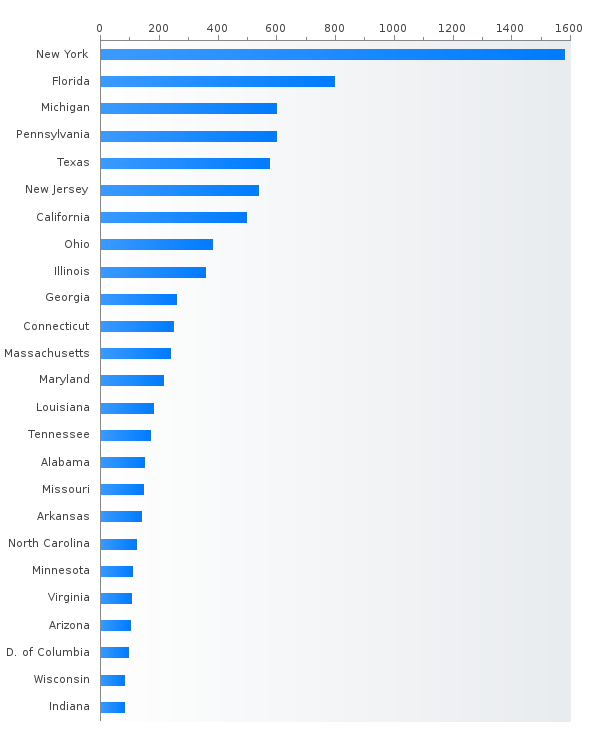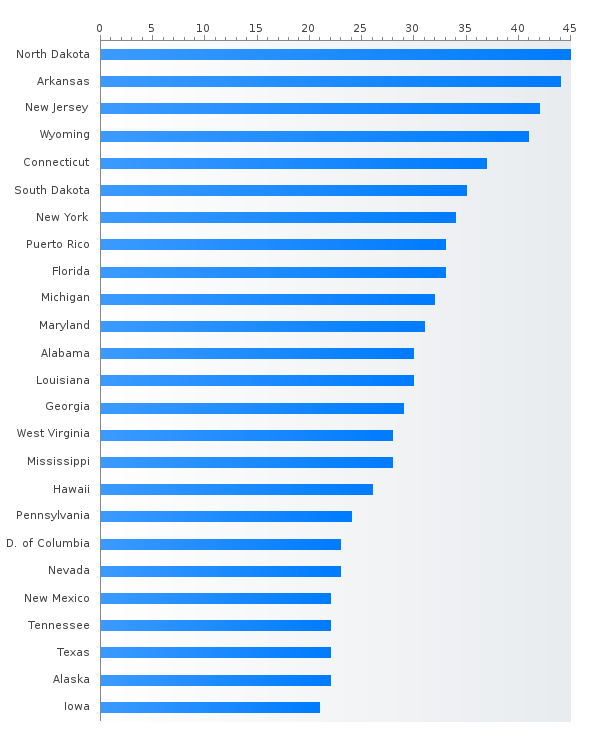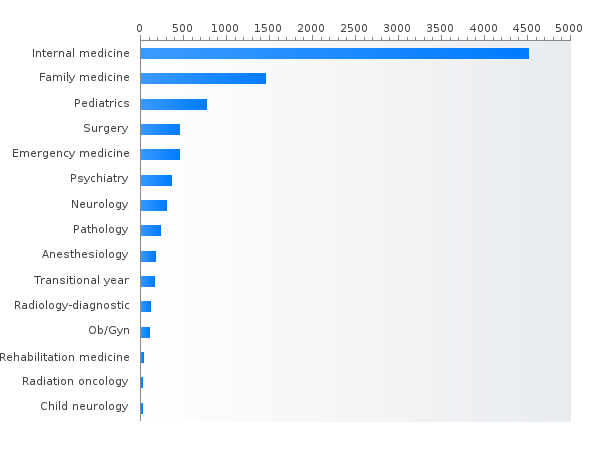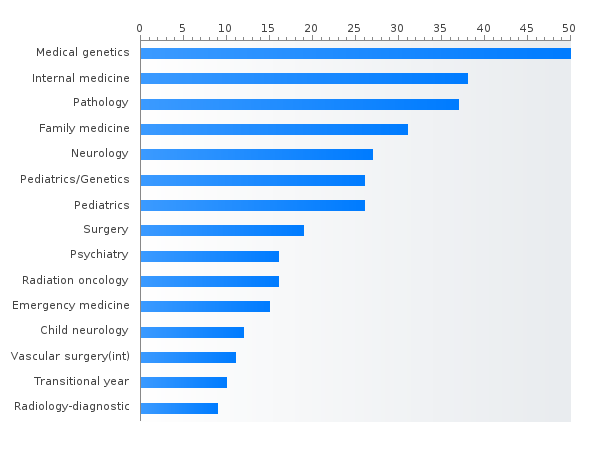Internal medicine 1403521470 Lincoln Medical and Mental Health Center New York
— 1403511264 Brookdale University Hospital and Medical Center New York
— 1403521305 SUNY Health Science Center at Brooklyn New York
Anesthesiology 0401612039 John H Stroger Hospital of Cook County Illinois
— 0401211038 Medical College of Georgia Georgia
— 0402521185 Henry Ford Hospital/Wayne State University Michigan
Neurology 1802531054 Detroit Medical Center/Wayne State University Program Michigan
— 1803521079 SUNY Health Science Center at Brooklyn New York
— 1803521083 SUNY Upstate Medical University New York
Emergency medicine 1101100204 HCA West Florida GME Consortium Florida
— 1103500208 Wyckoff Heights Medical Center New York
— 1103500207 Brookdale University Hospital and Medical Center New York
Radiology-diagnostic 4203521143 SUNY Health Science Center at Brooklyn New York
— 4203521147 SUNY Upstate Medical University New York
— 4202521096 Detroit Medical Center/Wayne State University Michigan
Transitional year 9993300243 Hackensack University Medical Center New Jersey
— 9994200249 Damas Hospital Puerto Rico
— 9992500060 Detroit Medical Center/Wayne State University (Sinai-Grace) Program Michigan
Dermatology 0804800145 Bay Area Corpus Christi Medical Center Texas
— 0802421141 Tufts Medical Center Massachusetts
Family medicine 1200511057 Arrowhead Regional Medical Center California
— 1203521465 Bronx-Lebanon Hospital Center New York
— 1204821457 Texas Tech University (Permian Basin) Program Texas
Nuclear medicine 2001121087 Jackson Memorial Hospital/Jackson Health System Program Florida
— 2005421078 University of Washington Washington
— 2002421038 Brigham and Women's Hospital/Harvard Medical School Massachusetts
Neurological surgery 1602031031 University of Louisville Kentucky
— 1600300113 Mayo Clinic College of Medicine and Science (Arizona) Arizona
— 1601100133 Mayo Clinic College of Medicine (Jacksonville) Florida
Ophthalmology 2403521098 Jamaica Hospital Medical Center/New York Medical College New York
Plastic surgery 3604831134 University of Texas Health Science Center at San Antonio Texas
— 3602621131 University of Minnesota Minnesota
— 3603921085 University of Oklahoma Health Sciences Center Program Oklahoma
Preventive medicine 3802588126 Wayne State University School of Medicine Michigan
— 3803213126 Dartmouth-Hitchcock Leadership in Preventive Medicine New Hampshire
— 3804588116 University of South Carolina School of Medicine South Carolina
Radiation oncology 4301622031 Loyola University Illinois
— 4301711032 Indiana University School of Medicine Indiana
— 4303313135 Rutgers Robert Wood Johnson Medical School New Jersey
Surgery 4403521202 Montefiore Medical Center/Albert Einstein College of Medicine New York
— 4403521207 Brookdale University Hospital and Medical Center New York
— 4402621163 Mayo Clinic College of Medicine (Rochester) Minnesota
Urology 4801100194 University of Florida College of Medicine Jacksonville Florida
— 4802400195 Beth Israel Deaconess Medical Center Massachusetts
Medical genetics and genomics 1304821012 Baylor College of Medicine Texas
— 1302321043 Johns Hopkins University Maryland
— 1302421024 Children's Hospital/Harvard Medical School Massachusetts
Vascular surgery - integrated 4510821084 Yale-New Haven Medical Center Connecticut
— 4515100002 Eastern Virginia Medical School Program Virginia
— 4513513004 University at Buffalo School of Medicine New York
Psychiatry 4003511242 Icahn School of Medicine at Mount Sinai (Elmhurst) New York
— 4003511140 Harlem Hospital Center New York
— 4001100309 Larkin Community Hospital Florida
Child neurology 1854821043 University of Texas Southwestern Medical School Texas
— 1852521052 Detroit Medical Center/Wayne State University Michigan
— 1853521054 SUNY Health Science Center at Brooklyn New York
Pathology-anatomic and clinical 3003521260 SUNY Health Science Center at Brooklyn New York
— 3004811352 University of Texas at Houston Texas
— 3003821277 Case Western Reserve University/University Hospitals Case Medical Center Ohio
Plastic Surgery - Integrated 3625500001 West Virginia University School of Medicine West Virginia
— 3623400001 University of New Mexico School of Medicine New Mexico
— 3621600148 Rush University Medical Center Illinois
Interventional radiology - integrated 4162400004 UMass Chan Medical School Massachusetts
— 4164800004 University of Texas Medical Branch Hospitals Texas
— 4164100007 Geisinger Health System Pennsylvania
Thoracic surgery 4604813124 Texas Heart Institute/Baylor College of Medicine Texas
— 4602621047 Mayo Clinic College of Medicine and Science (Rochester) Program Minnesota
— 4605500100 West Virginia University School of Medicine West Virginia
Thoracic surgery - integrated 4612400001 Brigham and Women's Hospital Massachusetts
Pediatrics 3203531394 Lincoln Medical and Mental Health Center New York
— 3203511146 Bronx-Lebanon Hospital Center New York
— 3203521173 SUNY Health Science Center at Brooklyn New York
Obstetrics and gynecology 2202531140 Hurley Medical Center/Michigan State University Michigan
— 2203511180 Bronx-Lebanon Hospital Center Program New York
— 2203521326 Lincoln Medical and Mental Health Center New York
Physical medicine and rehabilitation 3403522041 Kingsbrook Jewish Medical Center New York
— 3403521043 Montefiore Medical Center/Albert Einstein College of Medicine New York
— 3402512108 Wayne State University School of Medicine Michigan
Internal Medicine-Pediatrics 7002832126 University of Missouri-Columbia Missouri
— 7002532033 William Beaumont Hospital Michigan
— 7002532030 Hurley Medical Center/Michigan State University Program Michigan






